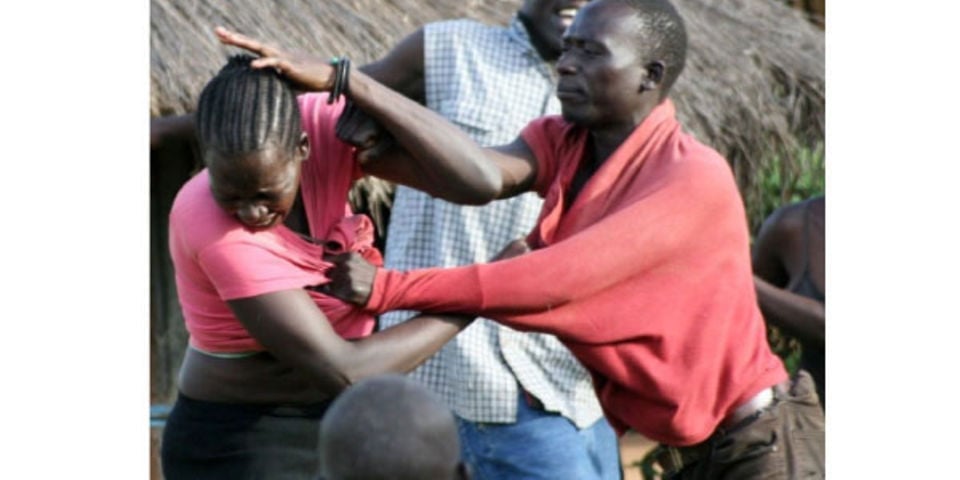We must combat violence of all forms against women

What you need to know:
- As we commemorate the World Aid’s day 2021 everyone’s voice should be geared towards ending violence against women and girls in the bid to end the epidemic.
Violence is a significant drive in HIV/Aids cases among women and girls. Violence includes psychological, physical, assault, sexual and economic abuse. Women and girls’ greater vulnerability to HIV infection derives from biological, social, economic, legal and cultural factors, unbalanced power relations, gender roles dynamics and societal acceptance of violence against women. Violence against women, including sexual assault and rape, will affect one in every woman worldwide over the course of her life time. One billion women have experienced physical or sexual violence, mostly by an intimate partner, according to statistics.
Sexual violence can cause physical and emotional trauma and permanent health problems, as well as increasing a woman’s vulnerability to HIV. The persistent violence inflicted on women is an intolerable human rights abuse. Consists of serious violation of a woman’s right to security, liberty, bodily integrity and sexual autonomy. This year’s theme is ‘End Inequalities – End Aids.’ Violence against women is an inequality and accelerates Aids transmission. Women as agents of change deserve respect, honour and dignity rooted in equality. We must combat violence against women to end HIV epidemic.
The link between violence and HIV has been established. Women’s inability to negotiate safe sex and refuse unwanted sex is closely linked to the high incidence of HIV. Unwanted sex results in a higher risk of bleeding and easier transmission of the virus. Women who are beaten by their intimate partners are 48 percent per cent more likely to be infected by HIV. Women living with HIV who are in violent.
Domestic violence is linked to HIV infection in women as follows: Rape and sexual assault within marriage is not uncommon, where wives have sex against their will even when there is a possibility of HIV infection.
Economically dependent women may submit to sex with infected husbands/partners out of rear of eviction and abandonment, or as a result of the husband’s insistence on having more children.
The threat of violence also often results in women deferring decisions about sexual practices to their male partners. The fear of violence or the experience of it may also interfere with women’s seeking HIV/Aids information, voluntary testing or counselling.
The mere introduction by a woman of the subject of condom use into a heterosexual relationship may elicit violence from a male partner.
Traditional customs contribute to women’s vulnerability to domestic violence and HIV infection. Socially suffer long term discrimination based on their HIV positive status and may be alienated.
As we commemorate the World Aid’s day 2021 everyone’s voice should be geared towards ending violence against women and girls in the bid to end the epidemic. We must remember if we are to tackle HIV from gender lenses it will end. We must stop violence against women in all forms. Addressing GBV should be key on government agenda. The new legislation, law reform, policies and strategies should have a component on eliminating GBV and its impact on women and girls. There is need to mitigate vulnerability of women through empowering women on their basic human rights. The digital realities of women and girls should not through access to technology and devices.
Women ought to shun and banish all forms of cultural practices that facilitate HIV transmission like female genital mutilation. A woman protected is a nation saved. Communities ought to advocate and lobby for a strong fight against violence. The end of gender based violence starts with us.
Society programs addressing, GBV must be well supported and funded. Society ought to create programs to enable women receive comprehensive post violence care including post exposure prophylaxis to prevent HIV infection and psychosocial support and access to legal services. We must advance and expand services for violence prevention and care. Education of women as well as advancing many free education benefits to women and girls, scholarships and more extra points is critical.
This education tool is powerful because an educated woman is financially independent and can easily make well informed choices about their lives. Prioritize access to education material on GBV fight services on health for all adolescent girls and women. There is need to support all programs geared towards keeping women and girls in school and offer additional education and social support. Advancing and protecting human rights is a pillar. This works to eliminate human rights barriers to services, including legal and policy barriers. Gender based violence must be addressed with determination and focus geared to end HIV epidemic. Promoting gender equality shall pave way for ending equalities. Done at an early age and working with youth to eradicate gender based violence are critical. Strong focus needs to be placed on women’s education and their human rights as well as their ability to make informed decisions and be financially independent. Only by working together can we help put an end to this global pandemic of gender based violence, which will have the double benefit of protecting women and girls from violence and from HIV.
Joyce Nalunga Birimumaaso,
Advocate and member of Leadership Code Tribunal




